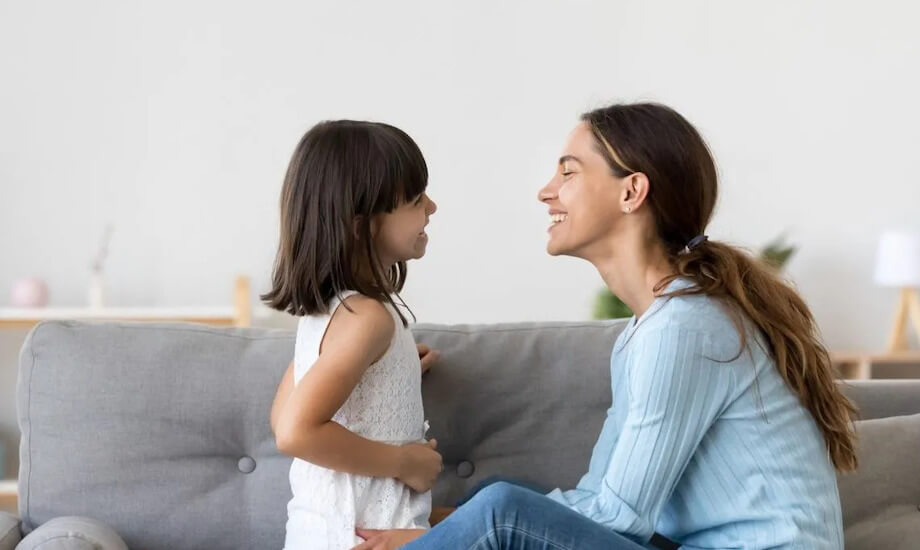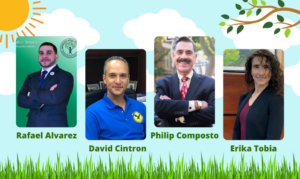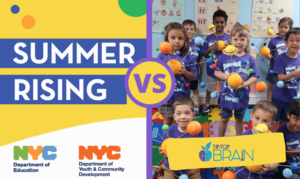As educators and parents, we understand the things we say can build a foundation for success. Our goal is to build strong relationships and create bonds of mutual respect and trust. We must begin by checking our language at the door. Meaning, we must change our language so that we can best empower and support children. This starts by being explicit, or intentional and clear, with our language. Parents and educators can use these five supportive phrases to communicate positive expectations and reinforce healthy behaviors.
1. “I hear you and I am listening“
Children, like adults, want to be seen and heard. When a child is visibly upset or frustrated our natural instinct is to comfort them. This phrase communicates that you are creating a safe space for your child: a space where they can be felt and heard. This phrase also fosters strong social-emotional skills such as eye contact, social awareness, body language, and turn talking.
2. “I’m sorry“
While saying sorry can be difficult for parents and educators we must realize the power an apology holds. An apology tells the child that you are able to recognize your mistake. This phrase also serves as a model for healthy behaviors.
At home, parents can use intentional language when apologizing to their children. Parents can model this by: (1) taking responsibility for their actions, (2) connecting their feelings to the action, (3) apologizing, (4) recognizing all feelings, and (5) sharing that it won’t happen again. “I’m sorry” is a brave statement that reinforces positive conflict resolution.
3. “I believe in you”
This simple yet powerful phrase communicates positive expectations and encouragement to children. Children can feel lost by the pressures placed on them to excel. When we support children and show that we truly believe in them their confidence can flourish. Experienced parents and educators know that it only takes one person to believe in you for everything to change! Of course, in order to support kids, we must believe in them!
4. “We will figure this out together!”
In a classroom, collaborative language illustrates that we are in a safe learning community. This phrase illustrates that we are all learning from our peers. This also emphasizes that the classroom is a team working together.
At home, parents can say “We will figure this out together” to support children struggling or feeling nervous. This phrase provides your child with a sense of agency, security, and comfort. When using this phrase at home, your child will recognize that they are not alone in stressful situations. They will realize that it is okay to ask for help. Children will be able to see that they are capable, intelligent, and can problem-solve.
5. “I love the way you… (insert specific action)“
When complimenting a child on a specific action we are building their self-esteem. We are reaffirming their actions by showing that we have noticed their hard work and attention to detail. In the classroom this phrase can look like: “I love the way you used your vocabulary words,” “I love the way you went back to the text to support your answers,” “I love the way you used your manipulatives to solve that problem,” and “I love the way you communicated how you were feeling….”
This phrase is also very meaningful in the home. At home, parents can verbally recognize their children’s achievements. For example, “I love the way you tried to figure this out before asking for help” and “I love the way you organized your belongings.” This phrase works best to support children when they know exactly what they are being praised for.
As we can see, these five simple phrases are an easy and effective way to support children. These phrases may seem difficult to incorporate into our daily language, the key is consistent practice! Parents that incorporate intentional language encourage and empower their children. These phrases will foster strong bonds between parent and child. By using intentional language this will allow children to practice problem-solving, self-regulation, collaboration, and social awareness, all of which are important social-emotional skills. Our language plays a great deal in empowering our lifelong learners and creating a supportive environment in the classroom and at home. Which of these five phrases will you try out next?







